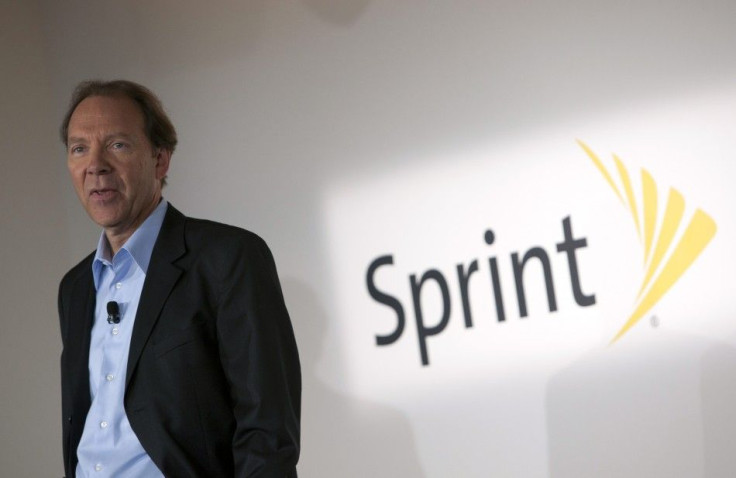Sprint: Permanent No. 3 Or Should It Bid For MetroPCS Or T-Mobile?

Shares of Sprint Nextel Corp. (NYSE: S) fell 2 percent Thursday on the heels of the effective acquisition of MetroPCS Communications Inc. (NYSE: PCS) by an arm of Deutsche Telekom (Pink: DTEGY).
If successful, the resulting new T-Mobile would be the No. 4 U.S. mobile carrier, with about 43 million customers, compared with Sprint’s 56 million, leaving the Kansas City, Kan., operator as the No. 3 mobile company, behind the Verizon Wireless unit of Verizon Communications (NYSE: VZ) and AT&T Inc. (NYSE: T).
At Thursday’s closing price of $5.09, Sprint’s market capitalization is only $15.3 billion, and the company hasn’t reported a quarterly profit since 2010.
Could CEO Dan Hesse and his team even contemplate mounting a competing offer for MetroPCS, of Richardson, Texas, whose shares rose 45 cents to $12.69, valuing the company at $4.6 billion?
A move could be difficult, especially because Sprint reported cash and investments of only around $8.1 billion as of June 30, with total debt exceeding $21.2 billion. Last year, when it signed a $20 billion deal with Apple (Nasdaq: AAPL), the world's most valuable technology company, to carry the iPhone 4S and successors, it had to add to the debt considerably.
But never discount Wall Street wizardry. The MetroPCS deal is complicated enough already, with its shareholders getting a $4.09 payment from Deutsche Telekom, whose T-Mobile USA will take it over, then create a new entity called T-Mobile, which will be publicly traded.
The MetroPCS deal will also require extensive regulatory approval and won’t even be complete until mid-2013, the parties announced.
A Sprint bid for MetroPCS would require some cunning. But Hesse in the past said he’d eyed the company. T-Mobile has agreed to pay a $250 million breakup fee if it cancels the deal MetroPCS has said it would pay $150 million.
Still, Deutsche Telekom may want out of the U.S. market. In early 2011, it agreed to sell T-Mobile USA, of Bellevue, Wash., to AT&T in a $39 billion deal shot down by the U.S. Department of Justice. UBS analyst John Hodulik suggests that the MetroPCS portion of the “new” T-Mobile would be only 38 percent of a company valued around $30 billion.
So Sprint would still have to come up with about $11.4 billion to pay off the German telecommunications giant, which look unthinkable now.
But with a partner, or perhaps divesting its legacy landline business inherited from its century as United Telecommunications, Sprint could raise cash for an acquisition. As well, it might argue that merger costs could be lower because it’s better equipped for long-term evolution (LTE) standards emerging in the sector.
T-Mobile uses the GSM and HSPA+ standards, while MetroPCS has built its nationwide network on the competing CDMA standard. As well, neither sells iPhone 5, which Sprint has been doing since its Sept. 21 shipping date.
Sprint may also have some other tools to play with, such as its investment in Clearwire Corp. (Nasdaq: CLWR), which provides 4G network services to more than 135 million U.S. customers, real estate at its headquarters campus and other assets. It could also seek help from one of the private equity giants swimming in cash but without current investments.
The No. 3 phone company also has some experienced deal makers on its board, including Gordon Bethune, former CEO of Continental Airlines.
Sprint has made some bad business decisions in the past, notably the $33.8 billion acquisition of Nextel Communcations, which was completed in 2006. The company never assimilated Nextel properly, added to its debt and hasn’t been able to report an annual profit since 2008.
It also sold minority stakes to Deutsche Telekom and France Telekom in 1994, only to see them liquidated after 2001, when a tripartite alliance never gelled. But Sprint and Deutsche Telekom have a history.
Sprint also was among the pioneers laying fiber-optic cable along railway and oil pipelines 30 years ago, offering competitive long-distance service and then in the mobile sector. So there's no reason why it couldn't flourish again.
© Copyright IBTimes 2024. All rights reserved.






















